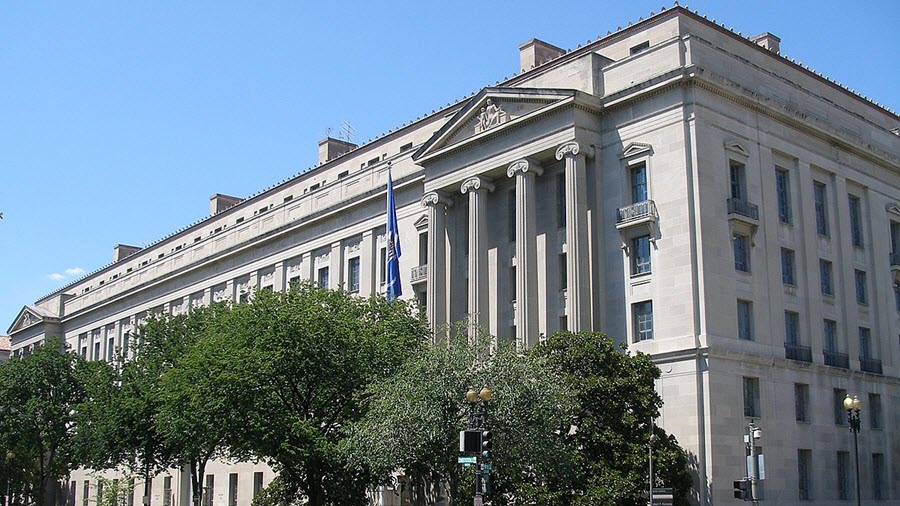DOJ Issues New Advice on Standards Essential Patents
The smarter way to stay on top of the multichannel video marketplace. Sign up below.
You are now subscribed
Your newsletter sign-up was successful
In a move that should please patent-holder Qualcomm, but not iPhone maker Apple, the Justice Department has issued a new advisory on standards-essential patents that makes clear that the requirement to patent those technologies on reasonable terms does not mean that patent holders lose legal rights to protect them.

Standard-essential patents are ones for technologies that are essential for the functioning of a baseline technology, like Qualcomm chips in smart phones.
Related: Apple, App Developers: SEP Injunctions Should Not Be Easy
“Today’s policy statement recognizes that when licensing negotiations fail, appropriate remedies for patent infringement, including injunctive relief, should be available to SEP holders," said antitrust chief Makan Delrahim. "The availability of the full range of remedies is necessary in order to preserve competition and incentives for innovation, and for continued participation in standards-setting activities, which can produce substantial benefits for American consumers.”
So, when a patent owner promises to make the patent available to competitors at reasonable rates and on reasonable terms, it still has the full legal arsenal if it thinks its patents are being misused, i.e. that there is no special set of rules. Justice said the 2013 joint statement had appeared to suggest that special, unprotected, status when it said that seeking an injunction against use of those essential patents as part of a legal challenge could potentially harm competition.
"We hope that the new policy statement helps create greater efficiency in SEP licensing by achieving a healthier balance in leverage between patent-holders and licensees," said a Justice official speaking not for attribution. "That will ultimately reduce transaction costs and fuel the speedy incorporation of cutting-edge technologies into a broader range of products. Doing so will help foster dynamic competition that benefits the American consumer."
On whether the shift now favors patent holders--like Qualcomm--they said no, arguing that courts have consistently said patent holders have the right to seek injunctive relief. He said that the new policy statement just recognizes that SEPs have that right and that exercising it "does not raise competition concerns and is not in tension with the antitrust laws."
The smarter way to stay on top of the multichannel video marketplace. Sign up below.
Antitrust Chief Makan Delrahim said in a speech last year that DOJ was rethinking its position on standards-essential patents (SEPs), including withdrawing from the Obama-era (2013) joint “Policy Statement on Remedies for Standards-Essential Patents Subject to Voluntary FRAND [fair, reasonable and nondiscriminatory] Commitments.”
Delrahim suggested that the 2013 statement had conveyed the wrong impression of DOJ's position on when and how patent holders can exclude competitors from using their essential technologies. "Since injunctions against infringement frequently do serve the public interest in maintaining a patent system that incentivizes and rewards successful inventors through the process of dynamic competition, enforcement agencies without clear direction otherwise from Congress should not place a thumb on the scale against an injunction in the case of FRAND-encumbered patents," Delrahim said at the time, presaging this week's statement.
Apple earlier this month had asked the Trump Administration not to withdraw from the statement, arguing that it "fully allows for appropriate monetary remedies if patent infringement is proven, while also recognizing appropriate limits for exclusionary relief when the SEP owner has instead promised to grant fair, reasonable, and nondiscriminatory (FRAND) licenses."
Contributing editor John Eggerton has been an editor and/or writer on media regulation, legislation and policy for over four decades, including covering the FCC, FTC, Congress, the major media trade associations, and the federal courts. In addition to Multichannel News and Broadcasting + Cable, his work has appeared in Radio World, TV Technology, TV Fax, This Week in Consumer Electronics, Variety and the Encyclopedia Britannica.

